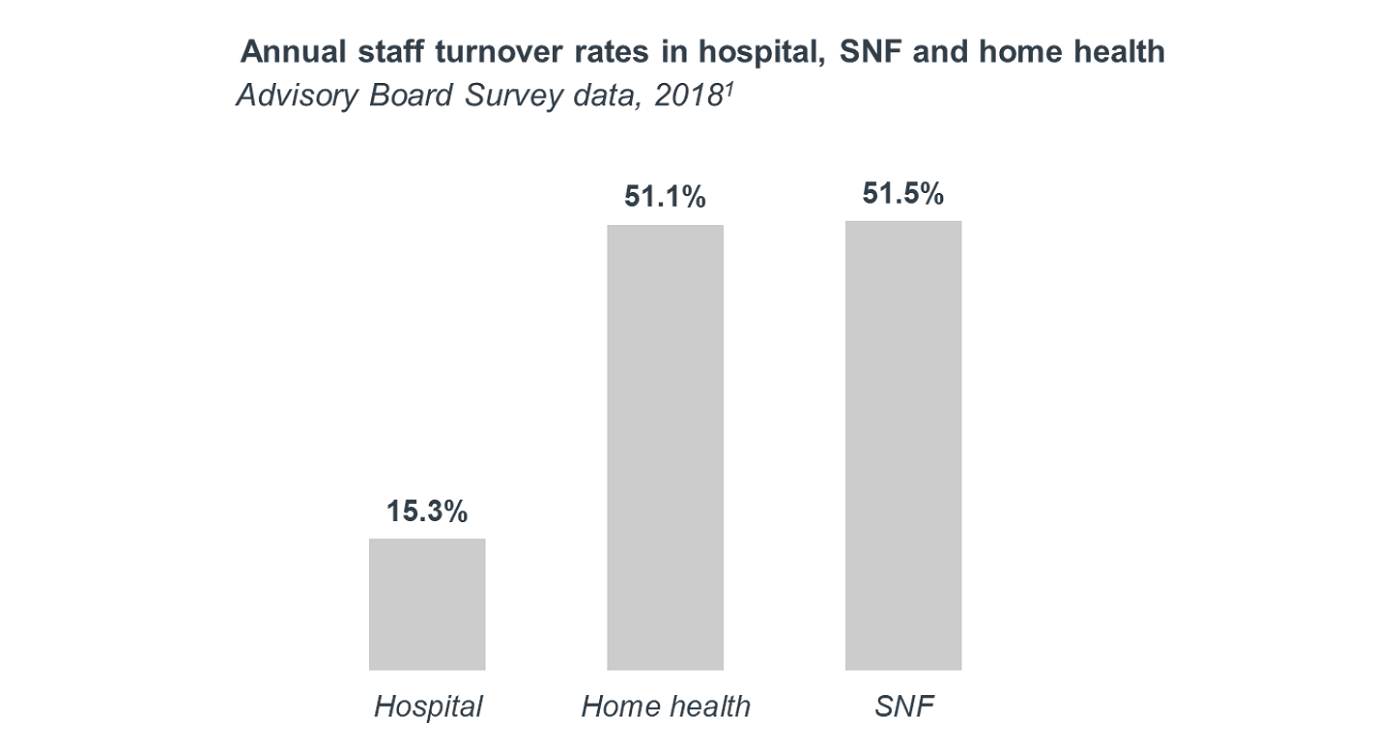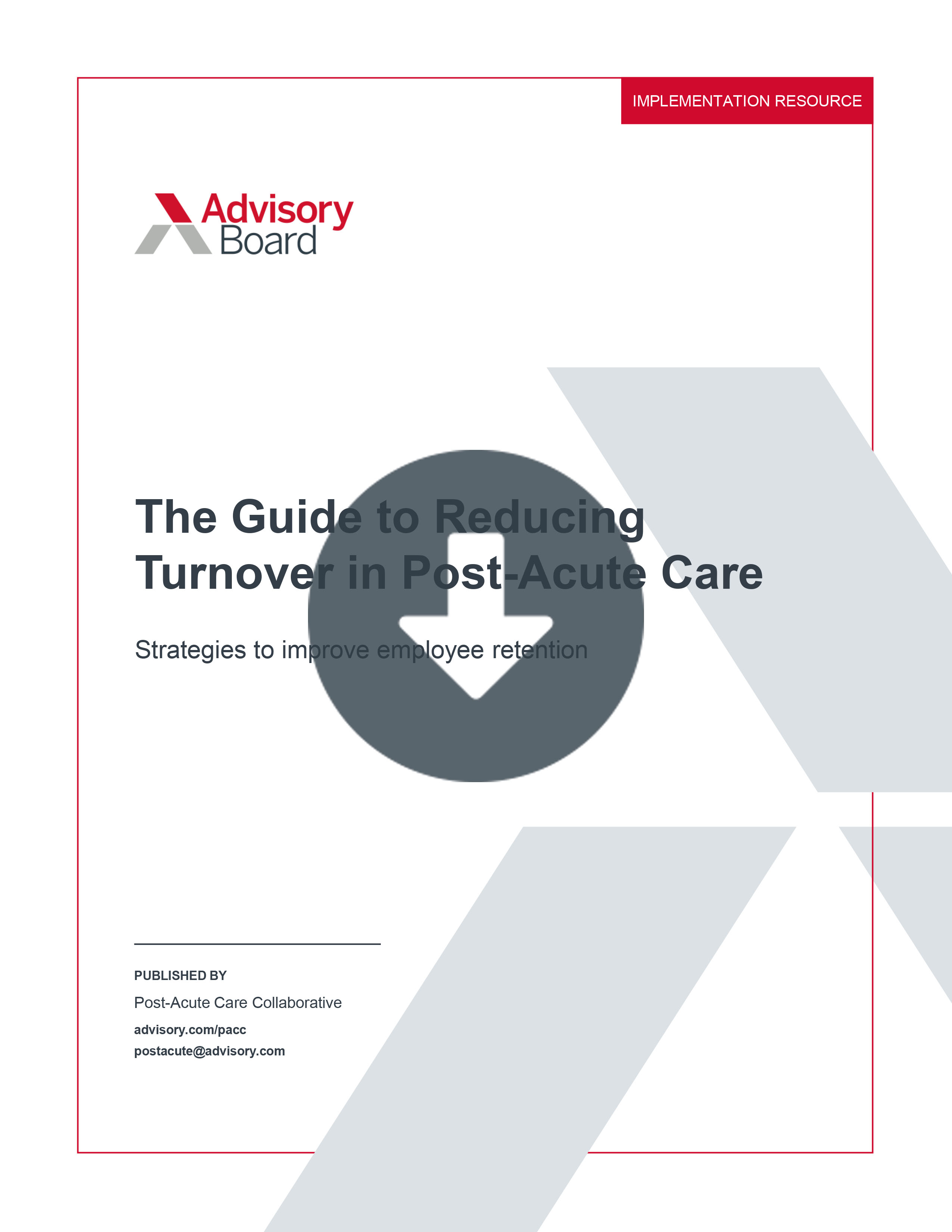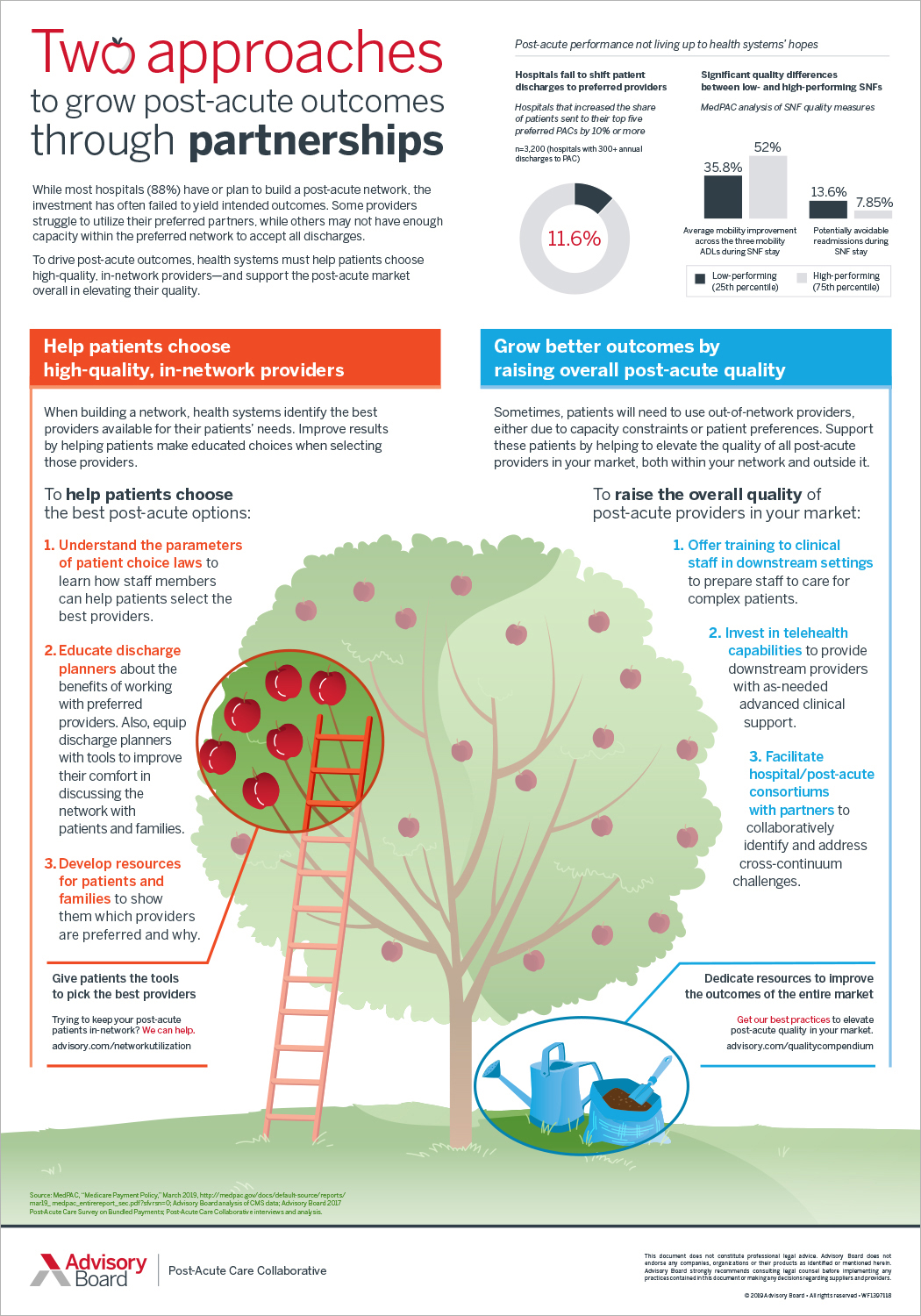Auto logout in seconds.
Continue LogoutAs the novel coronavirus continues to spread, one thing is clear: Nursing homes and skilled nursing facilities (SNFs) are on the front lines of the fight.
Your top resources for coronavirus readiness
Thus far, analyses have shown that elderly people and those with comorbidities are most likely to experience severe infection and are most at risk of dying of COVID-19, the disease caused by the 2019 coronavirus. These high-risk groups are often found in skilled nursing settings—and in fact, two nursing homes in Washington state have reported an outbreak.
While COVID-19 has the attention of all health care providers, SNFs in particular should be on high alert given the characteristics and density of their resident and patient population. Beyond the human toll, cases in SNFs are likely to result in both short- and long-term business implications. Facilities that experience an outbreak won’t be taking new admissions in the short-term, and in the long-term that stigma will be hard to overcome.
Post-acute providers know what they need to do—the best way to combat COVID-19 is through prevention. The CDC guidelines are clear: handwashing, disinfection of surfaces, and appropriate use of personal protective equipment (PPE) is critical to risk reduction. Providers know what they need to do to protect their residents—but even outside of a pandemic scenario, many SNFs struggle to effectively and consistently implement infection control procedures.
Why do SNFs struggle with infection prevention? Staffing.
As Kaiser Health News has done a terrific job tracking in recent years, more than 61% of nursing homes have been cited for one or more infection-control deficiencies since 2017. All but 1% of those violations were minor, but the overall data speaks to the difficulty SNFs have in adhering to infection prevention protocols.
There are many reasons that infection prevention is challenging for SNFs, but they primarily come down to staffing.
- Staffing ratios are considerably higher in SNFs than in the hospital setting, resulting in a heavy workload that can lead to burnout—and to cutting corners in the name of efficiency.
- Staff mix is heavily weighted toward unlicensed staff, such as certified nurse aides (CNAs), as opposed to RNs, APNs, or physicians. These staff do not have as much education, or training in critical thinking skills, as higher-level staff. This reduces the likelihood that they will fully understand the reasoning behind specific infection prevention measures—and increases the risk that they might miss noteworthy, though small, changes in patient condition.
- Clinical staff turnover in the SNF setting is much higher than in the hospital—nearly 52%, as opposed to 15% in hospitals, according to our latest benchmarking survey. Training related to infection prevention may be lost as staff leave and the staff who remain may feel overburdened.

- It can be difficult to find clinicians who want to work in post-acute settings due to lasting stigmas against the work environment and lack of exposure to post-acute care in nurse and aide-training programs. Simultaneously, a competitive labor market means SNFs are competing for workers with retail companies and gig economy platforms.
These are systemic, long-term issues in the post-acute industry. Reimbursement changes, often with regard to Medicaid funding, have exacerbated these challenges, making it more difficult for SNFs to increase their staffing levels.
But COVID-19 means that SNFs—and their hospital partners—can't wait for the reimbursement environment to improve before making changes. To avoid catastrophe, SNFs must recommit to infection prevention, and hospitals, physicians and health plans need to help.
What should SNFs do?
- Ensure staff have easy access to all necessary infection prevention tools, including soap, hand sanitizer, and PPE. In addition, make sure all staff have received up-to-date training on CDC guidelines and infection control initiatives.
- Increase staffing levels and overall staffing mix.This will result in a short-term financial hit, but reduces the risk of burnout and cross-contamination.
- Ask hospital and physician partners for help!
While hospitals are also feeling the pressure to ensure their own facilities are prepared, they have the capacity to help. To keep it that way, it is essential to support SNFs and minimize the risk of an outbreak. The entire health system feels the burden of COVID-19; patients diagnosed in the SNF will likely end up in the hospital. Prevention is key.
How can hospitals and physician groups help their post-acute partners?
- Provide additional advanced-level clinician support in post-acute settings. For those hospital systems operating SNFist programs, now is the time for your physicians or NP-level SNFists to spring to action. If you don't operate a SNFist model, connect with your SNF partners and inquire about the need for staffing assistance, including additional RN support.
- Facilitate infection prevention training for staff in post-acute settings, or invite post-acute staff to internal hospital training programs on COVID-19 prevention. If your community hasn't been impacted yet, quick action and a unified market response may keep it that way.
- Share infection prevention guidelines with post-acute partners. While SNFs generally lack some of the characteristics hospitals have to reduce the spread of infection, such as negative pressure rooms, they can still implement many of the same protocols as those developed for hospitals—and leveraging hospital guidance means the SNFs don't need to dedicate limited RN time to developing protocols from scratch.
Yes, COVID-19 represents a critical challenge for SNFs. But it's not a challenge that SNFs should face alone. Collaboration between acute, post-acute, and medical group partners is vital to reducing its spread, and maintaining the health and safety of your community.
Your top resources for coronavirus readiness
You're no doubt being inundated with a ton of information on how to prepare for possible patients with COVID-19. To help you ensure the safety of your staff and patients, we pulled together the available resources on how to safely manage and prevent the spread of COVID-19.
Don't miss out on the latest Advisory Board insights
Create your free account to access 1 resource, including the latest research and webinars.
Want access without creating an account?
You have 1 free members-only resource remaining this month.
1 free members-only resources remaining
1 free members-only resources remaining
You've reached your limit of free insights
Become a member to access all of Advisory Board's resources, events, and experts
Never miss out on the latest innovative health care content tailored to you.
Benefits include:
You've reached your limit of free insights
Become a member to access all of Advisory Board's resources, events, and experts
Never miss out on the latest innovative health care content tailored to you.
Benefits include:
This content is available through your Curated Research partnership with Advisory Board. Click on ‘view this resource’ to read the full piece.
Email ask@advisory.com to learn more.
Click on ‘Become a Member’ to learn about the benefits of a Full-Access partnership with Advisory Board
Never miss out on the latest innovative health care content tailored to you.
Benefits Include :
This is for members only. Learn more.
Become a member to access all of Advisory Board's resources, events, and experts
Never miss out on the latest innovative health care content tailored to you.



